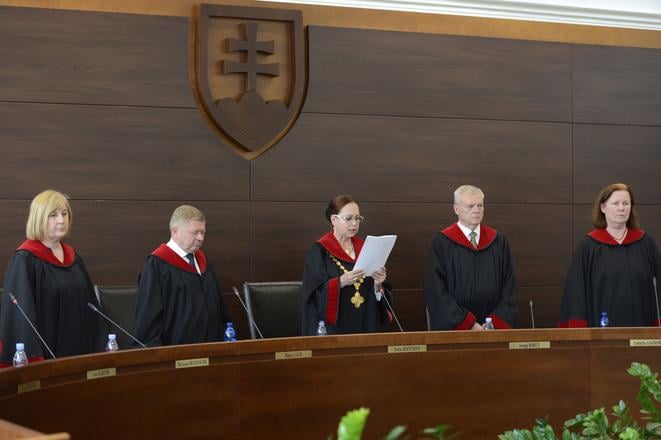Freezing the salaries of some constitutional officials in 2017 was not in compliance with the Slovak constitution, according to the ruling issued by the Constitutional Court on April 25.
The amendment adopted by the parliament last year froze the salaries of some constitutional officials to the 2011 level. The court stated that particularly the provisions concerning the chair and deputy chair of the Supreme Audit Office (NKÚ), head of the National Security Authority (NBÚ), the public defender of rights and commissionaires for children and people with disabilities, are at odds with the constitution.
It also concerns the state employee in the public function at the ministry and head of the other central public administration body and the member of the council, whose salary depends on those of the MPs, the TASR newswire reported.
Three justices, Peter Brňák, Milan Ľalík and Lajos Mészáros, attached different statements to the verdict.
No reason for austerity measures
The amendment, which also froze the salaries of the president, MPs and government members, was challenged by General Prosecutor Jaromír Čižnár.

At the same time, the Constitutional Court dismissed other provisions, about which Čižnár complained, TASR wrote.
The general prosecutor said in a motion that the economic growth in past few years and annual increase in the average nominal monthly wage do not give any reason for adopting the austerity measures usually approved at the time of economic crisis.
“I consider this legislation an unacceptable interference in the constitutionally guaranteed rule of law principle,” Čižnár said, as quoted by TASR.



 Some judges of the Constitutional Court; illustrative stock photo (source: TASR)
Some judges of the Constitutional Court; illustrative stock photo (source: TASR)